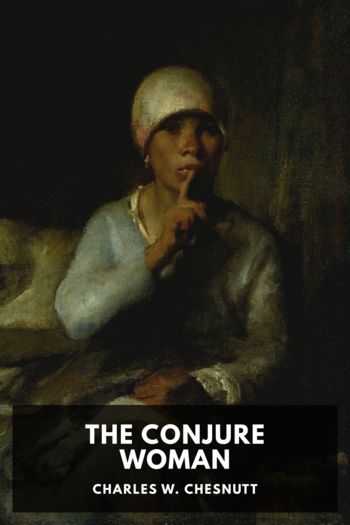The Lives of the Caesars, Suetonius [best book club books for discussion .TXT] 📗

- Author: Suetonius
Book online «The Lives of the Caesars, Suetonius [best book club books for discussion .TXT] 📗». Author Suetonius
The fossae Drusinae, two miles long, connecting the Rhine with the Yssel, to furnish a passage to the North Sea. ↩
See Augustus, 22. ↩
Cf. Tiberius, 7.3. ↩
The reference is probably to the scribae quaestorii, the quaestor’s clerks, who were the most important of the attendants upon the magistrates. They formed a guild composed of six decuriae, or divisions of ten, presided over by six officers called sex primi curatorum. ↩
A decursus or decursio. Dio, 56.42, describes the one about the funeral pyre of Augustus. After running around it in full armour, the soldiers cast into the fire the military prizes which they had received from the emperor; cf. Julius, 84.4. ↩
See note on Tiberius, 26.1. ↩
The spolia opima were the armour of the leader of the enemy, taken from him in hand-to-hand combat by a Roman general. ↩
C. and L. Caesar: see Tiberius, 23. ↩
That is, on the anniversary of the dedication, which was in 12 BC ↩
That is, the age at which one was ordinarily freed from tutelage. The usual formula is in suam tutelam venire, Cicero De Oratore I.39.180. ↩
Of relatives and friends. ↩
The future emperor. ↩
Claudius. ↩
Celebrated by Augustus in 12 AD in honour of Mars Ultor; cf. Augustus, 29.1 and 2. ↩
The two Greek words, ἄρτιος and ὁλόκληρος, mean “complete,” “perfect of one’s kind;” the meaning therefore is “if he have his five senses.” ↩
See note on Augustus, 45.1. ↩
See note on Julius, 83.2; the heirs in the third degree had little or no prospect of receiving their inheritance. ↩
Sigillaria: December 21 and 22, an extension of the Saturnalia, when it was customary to make presents of little images of various kinds (sigilla); also the name of a quarter or street in Rome, see Claudius, 16.4; Nero, 28.2. ↩
Founded by Tiberius for the worship of the Deified Augustus. ↩
Of his house. ↩
Gaius appointed a number of consuls at once, who drew lots for the year when they were to hold the office. ↩
See Caligula, 8.1 and 24.3. ↩
The Rhine. ↩
See Caligula, 22.3. ↩
He had borrowed money from the public treasury for his entrance fee into the new priesthood, and pledged his estates as security. ↩
That is, the prefects of the treasury, chosen from the praetors and ex-praetors (see Augustus, 36). Claudius later restored the charge of the treasury to the quaestors (see Claudius, 24.2). ↩
In vacuum; the meaning in uncertain. It perhaps means that the advertisement was merely a matter of form, though none the less humiliating. ↩
“Hope” of becoming emperor; “confidence” that he had escaped death. ↩
By restoring the republic. ↩
For carrying her image; see Caligula, 15.1 and cf. Tiberius, 51.2. ↩
Germanicus. ↩
See Augustus, 98.5. The comedy was doubtless written by Germanicus; see Caligula, 3.2. ↩
See Julius, 76.1. ↩
With garlands and perfumes; cf. note on Tiberius, 48.2. ↩
See note on Julius, 62. It was considered a bad omen if it was difficult to pull the standards from the ground. ↩
Before his own tribunal. ↩
More literally “the decuries for court duty,” to distinguish them from the decuries of knights, scribes, etc. ↩
That is, he enjoyed the privileges of the ius trium liberorum, one of which was freedom from jury duty. ↩
Cf. Dio, 60.28. ↩
Only a Roman citizen had the right to wear the toga. ↩
On these see Augustus, 39. ↩
By affixing the nota, or mark of disgrace, to their names on the census-list. ↩
Referring to the street or quarter; see note on Claudius, 5. ↩
Suetonius is vague. Dio, 60.19, says that one Bericus, who had been expelled from the island during a revolution, persuaded Claudius to send troops there. Possibly the reference is to the deserters mentioned in Caligula, 44. ↩
A suburb of Rome, lying north of the city, outside of the Serbian wall. ↩
A large building in the campus Martius, where the votes cast in the elections were sorted and counted; according to Dio, 55.8, the largest building ever covered by a single roof. ↩
Passed in 9 AD, after the failure of Augustus’ law de maritandis ordinibus; see Augustus, 34. ↩
See note on Augustus, 47. ↩
These were numerous and varied; cf. Dio, 55.2. ↩
This had been brought by Gaius from Heliopolis and set up in the spina of his circus, near the Vatican hill. It now stands before the cathedral of St. Peter. The great ship in which it was transported to Rome from Alexandria is described by Pliny, Natural History 16.201. ↩
Pompey placed the temple of Venus Victrix at the





Comments (0)